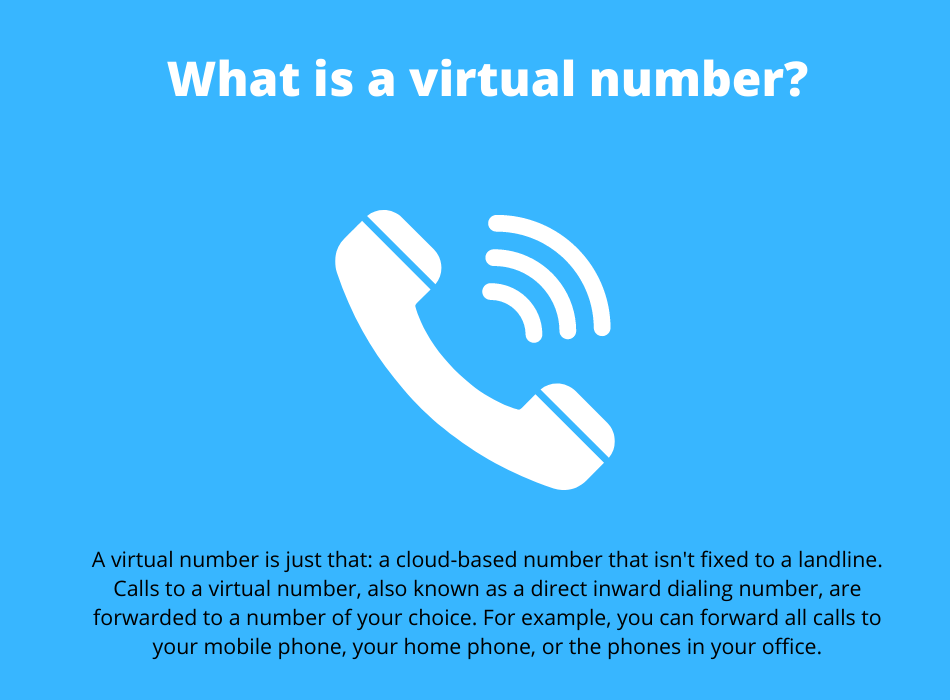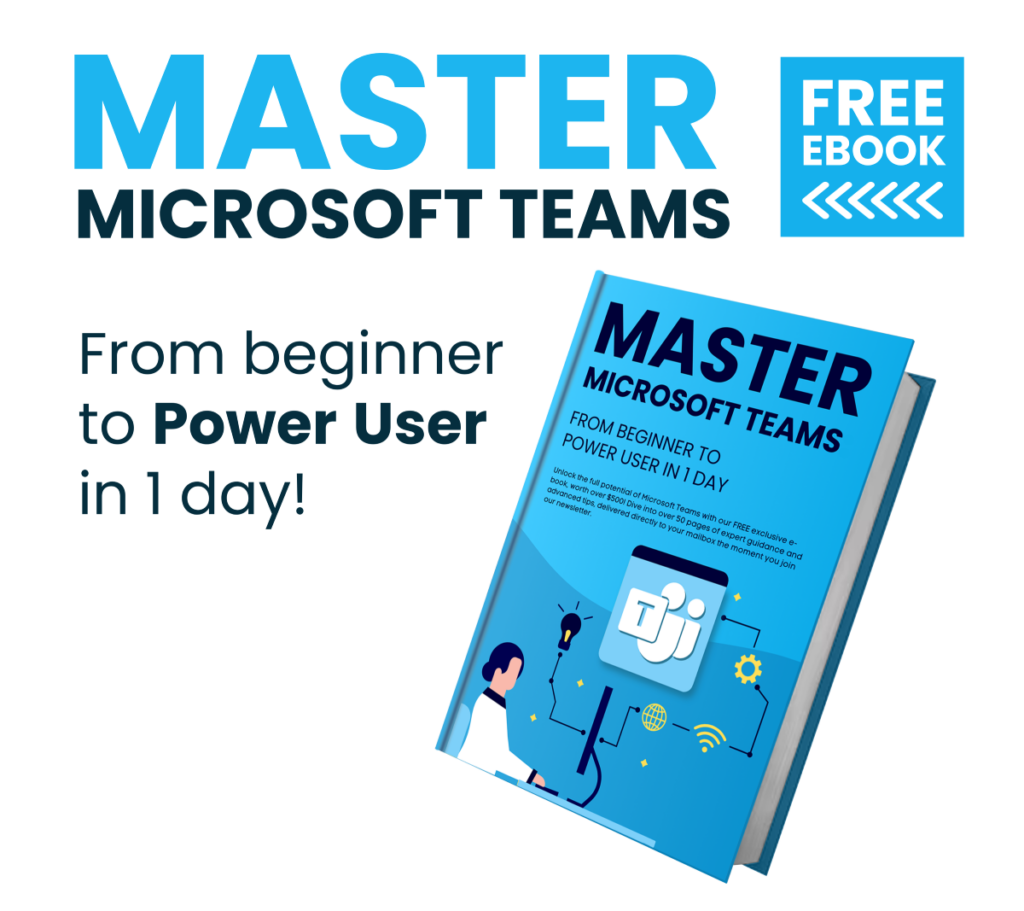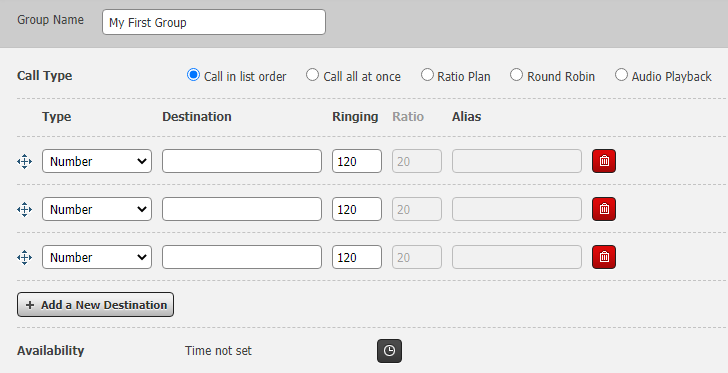You’ve probably heard of virtual numbers, but you’re not sure what they are or how they work. Virtual numbers can benefit any business, but I think it’s important to understand how something works before you buy it. That’s why I decided to write a blog post explaining how virtual numbers actually work.
How does a virtual number work? A virtual number is a telephone number without a fixed telephone line. You configure a virtual number to forward all incoming calls to a fixed or mobile number.
That’s a (very) brief explanation of how virtual numbers work. Throughout this blog post, I’ll first detail what virtual numbers are, while explaining in more detail how they work. I’ll also answer a few more frequently asked questions towards the end of this post. So if you’re not sure what virtual numbers are, or you want to better comprehend how they work, keep reading.
What Are Virtual Numbers?
A virtual number, also known as a direct inward dialling number, is a telephone number without an associated phone line, either mobile or fixed.
In history, a phone number was associated with a single physical phone line. That phone line would be physically connected to a company’s office and all calls to the phone number would go through to the company’s phone system. Calls could solely go to that specific location, with no option to divert calls elsewhere.

With virtual numbers, the shackles of a phone number tied to one physical phone line are removed. Any calls to the number can be pointed anywhere that you want. Whether you want to point them to your main office number, your home phone, or your mobile phone, the choice is completely yours.
You can use a virtual number and point it wherever you want. Benefits of using virtual numbers include location anonymity and easier business continuity, but I’ll explain those benefits in more detail later in this blog post.
Next, I’ll explain in some more detail how virtual numbers work, how you manage them, and the benefits of using them.

How Do Virtual Numbers Work?
As I said before, a virtual number is just a telephone number without a fixed phone line. Any calls to the number are forwarded to a number, or series of numbers, that you choose. But how do virtual numbers actually work?
Virtual numbers are like your average phone number; they’re just not attached to a fixed line. The numbers themselves are held on a server and you manage them through a cloud interface usually.
You can point your virtual number to one or multiple mobiles or fixed telephone numbers. For example, you could point it to your office phone number. Depending on how your office telephone system is configured, this would cause the phones in your office to ring when someone calls the virtual number.
Here’s an example of a virtual number manager. This screen demonstrates the configuration of a virtual number. You enter the numbers that you want calls to forward to. As you can see, you can add one or several numbers. Furthermore, you can decide whether all the phones ring at once, or whether you want them to ring in order.

Once you’ve configured your numbers through the online interface, all calls will go through to the numbers you’ve chosen. Anyone calling your virtual number won’t know the number that the virtual one is pointing to. Further, they won’t know where you’re based. That’s a key advantage of virtual numbers; they can give you location anonymity. A lot of businesses offering 24/7 support use virtual numbers to point calls to different countries, enabling around-the-clock support. You might think you’re calling a UK-based company, but the virtual number could be forwarding calls to another country.
That’s really all there is to say about how virtual numbers work. The concept is fairly basic, when you think about it. Now we’ve covered how they work, I’m going to explain the advantages of using virtual numbers.
The Advantages Of Using Virtual Numbers
There’s a reason that virtual numbers are so widely used; they can benefit almost every business, large and small. I think virtual numbers should be used by every single business. Let me explain why.
- Greater flexibility
- Vital part of a business continuity plan
- Establish a presence anywhere
- Work wherever you want
These benefits are enough to justify the small cost of a virtual number (as little as £5 per month). We’ll break each benefit down and you’ll soon see why.
Greater Flexibility
Virtual numbers offer you much greater flexibility when compared with fixed landline numbers. No matter where you are, you can still receive calls. If you’re between locations, you aren’t missing calls because you’re not at your office desk.
This is one of the primary benefits of using virtual numbers. You can forward calls to any mobile or fixed number, ensuring you never miss another important call. The problem with traditional landline numbers is that you cannot forward calls elsewhere. So if you’re ever out of the office, who knows how many calls you could be missing?
Also, you’re no longer reliant on the physical landline into your office. In fact, that nicely brings me onto my next point: virtual numbers can be a vital part of your business continuity plans.
Vital Part Of A Business Continuity Plan
If your business doesn’t have a business continuity plan, you need to create one. And if you already have one, are virtual numbers a part of that plan?
Virtual numbers can be a vital part of your business continuity plan, because you can forward calls to any fixed or mobile number. Here’s a scenario to demonstrate what I mean.
Your business has a hosted VoIP telephone system and your provider’s servers go offline. If you’re not using virtual numbers, you potentially miss important calls and your business loses money as a consequence. If you are using virtual numbers, you simply forward the calls to mobiles, or another fixed number.
The above scenario is the primary reason that I’d recommend you use virtual numbers. Your business can continue to operate should you encounter such a situation as the one detailed above, because you can just forward your calls elsewhere.
Establish A Presence Anywhere
Virtual numbers allow you to establish a presence anywhere, without the expense of setting up a new office.
In theory, you could have one office in London and virtual geographic numbers for Leeds, Manchester, Glasgow, and Belfast. All calls to the Leeds, Manchester, Glasgow, and Belfast numbers could be forwarded to your London office.
I think this is a good use for virtual numbers. If you’re wanting to expand into another area without the total commitment of creating a new branch, this is an inexpensive way to do so. You can test the waters with a cost-effective virtual number to see whether establishing a new branch would be a worthy investment.
Work Wherever You Want
Virtual numbers make it easy to work wherever you want. Working in the office? Forward all the calls to your desk phone. Working at home? Forward all the calls to your landline. On the road? Forward all the calls to your mobile phone.
The ability to work remotely is increasingly desirable to businesses and virtual numbers make working no matter where you are easier than ever. You can ensure that you don’t miss a call, even when it isn’t possible for you to work in the office.
It’s worth noting that you can choose where your calls are forwarding and change the settings of your virtual number independently. You don’t need to contact your provider and ask them to change the settings for you. In fact, some virtual number providers have smartphone applications that enable you to change your settings on the go.
Are There Any Disadvantages Of Virtual Numbers?
Are there any disadvantages of using virtual numbers? Not really. A virtual number is, in my opinion, something that every business should have. There really aren’t any notable disadvantages to be aware of.
Let me know if the comments if you’re already using virtual numbers, or you’re considering using them. I’d be interested to find out what you personally think to virtual numbers and how they’ve helped your business.
